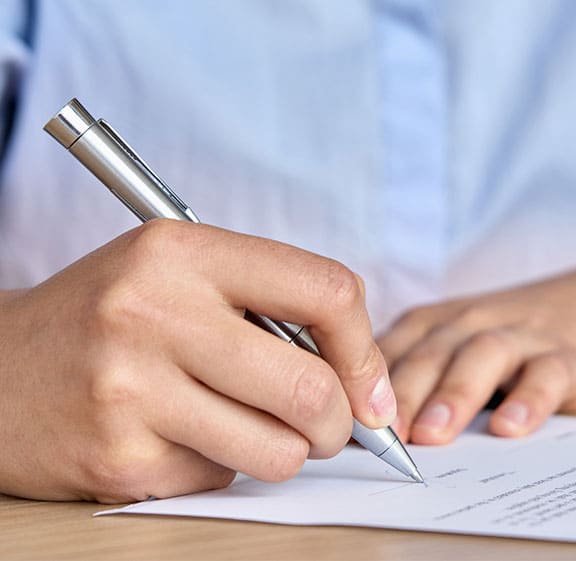Answers To Our Frequently Asked Questions About Credit Card Disputes in Michigan
1
Who are the parties to dispute a credit card transaction?
ANSWER: The card issuer (Visa, Mastercard), your bank, the merchant and the merchant’s bank.
2
Is the bank required to have my signature on an agreement in order to enforce it against me?
ANSWER: No. Typically credit card agreements provide that your use of the credit card is your acceptance of the terms and conditions of the agreement.
3
Can my bank unilaterally change the terms of my credit card agreement?
ANSWER: Yes. The credit card agreements typically provide that bank or card issuers can change the terms of the agreement at any time, usually with notice to you.
4
What is my liability for unauthorized use of my credit card?
ANSWER: Usually, your maximum liability for unauthorized use of your credit card is $50. Even then, there are exceptions in which your liability can be even lower. Victims of identity theft need to know that if they have had their wallets stolen, this may be their maximum liability. However, if a credit card was opened in their name without their permission, then they have no liability for any amount incurred on that credit card. Credit card agreements may modify this rule, but may not increase your liability beyond $50.
5
What are the steps to disputing an item on my credit card bill?
Step 1
Send a dispute to the credit card company immediately.
Send a copy of your credit card statement that contains the offending charge and identify it in your letter clearly. You must send that dispute within 60 days of the date that you receive the statement that contains the incorrect charge on it. In your letter, be very particular about your dispute. (For example, did you not order the goods or services or were they not delivered to you). Be sure to keep a copy of the dispute letter.
Step 2
Make sure that the bank or credit card company sends you a written acknowledgment of the dispute.
If you do not get a written acknowledgment in 2 weeks, send the dispute letter again.
Step 3
The bank has 2 billing cycles within which to investigate your dispute.
They have to contact the merchant and get their side of the story. The bank will then send you a letter stating whether it will credit your account or not. During the investigation, you do not have to pay the charge nor should you be charged interest on the outstanding item. All other items that are not in dispute are due as normal.
The amount that you withhold pursuant to your dispute is not considered “delinquent” and hence, no one including the bank, credit card issuer or a third party debt collector is allowed to make efforts to collect that balance from you. If anyone attempts to collect this debt from you while your dispute is pending, you have a right to sue them for damages, plus cost and attorney’s fees. We provide these legal services at no out of pocket charge to you.
Step 4
Once the bank makes its decision, you may have to file a lawsuit to get the charge removed from your account.
You have a very short 1 year statute of limitations to file that lawsuit. The lawsuits that we file are under the Fair Credit Billing Act. Under this law, we can file the lawsuit for you and represent you at no out of pocket charge to you.
6
What are the most frequent type of billing errors on my credit card statement that I should be aware of, and dispute:
These are all good reasons to dispute an item on your credit card statement.
7
What should I put in my dispute letter to my bank or credit card company?
ANSWER: Your dispute must be in writing. Oral notice is not sufficient to trigger your rights.

A
Identify Yourself
Make sure your name, address, telephone number, last four digits of your Social Security number and full account number are in your letter.
B
Identify the Dispute
The body of your letter should identify the name of the merchant and the full account number or transaction number associated with the transaction, the date of the transaction and the amount. If you want to be absolutely certain that there is no misunderstanding as to the dispute, your best bet is to include a copy of the credit card statement and circle the offending charge. You should also send it by certified mail with a return receipt requested and of course keep a copy of your letter and all attachments for your records.
C
Specify the nature of your dispute
Tell your bank or credit card issuer every reason why you have to dispute the transaction. Be as specific as possible.





